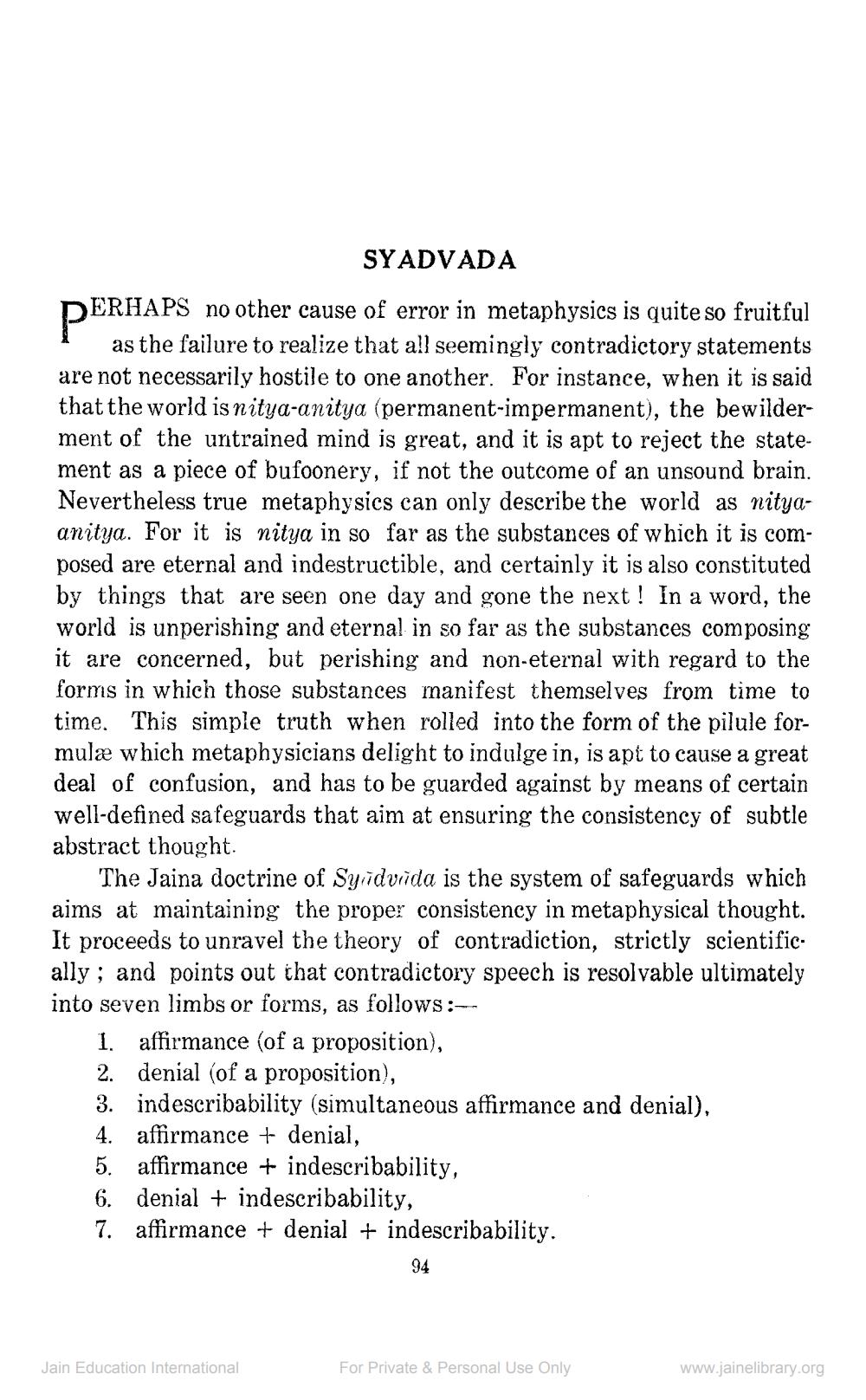________________
SYADVADA
PERHA
ERHAPS no other cause of error in metaphysics is quite so fruitful as the failure to realize that all seemingly contradictory statements are not necessarily hostile to one another. For instance, when it is said that the world is nitya-anitya (permanent-impermanent), the bewilderment of the untrained mind is great, and it is apt to reject the statement as a piece of bufoonery, if not the outcome of an unsound brain. Nevertheless true metaphysics can only describe the world as nityaanitya. For it is nitya in so far as the substances of which it is composed are eternal and indestructible, and certainly it is also constituted by things that are seen one day and gone the next! In a word, the world is unperishing and eternal in so far as the substances composing it are concerned, but perishing and non-eternal with regard to the forms in which those substances manifest themselves from time to time. This simple truth when rolled into the form of the pilule formulæ which metaphysicians delight to indulge in, is apt to cause a great deal of confusion, and has to be guarded against by means of certain well-defined safeguards that aim at ensuring the consistency of subtle abstract thought.
The Jaina doctrine of Sydvida is the system of safeguards which aims at maintaining the proper consistency in metaphysical thought. It proceeds to unravel the theory of contradiction, strictly scientifically; and points out that contradictory speech is resolvable ultimately into seven limbs or forms, as follows:
1. affirmance (of a proposition),
2. denial (of a proposition),
3. indescribability (simultaneous affirmance and denial),
4. affirmance + denial,
5. affirmance + indescribability,
6. denial indescribability,
7. affirmance + denial + indescribability.
Jain Education International
94
For Private & Personal Use Only
www.jainelibrary.org




